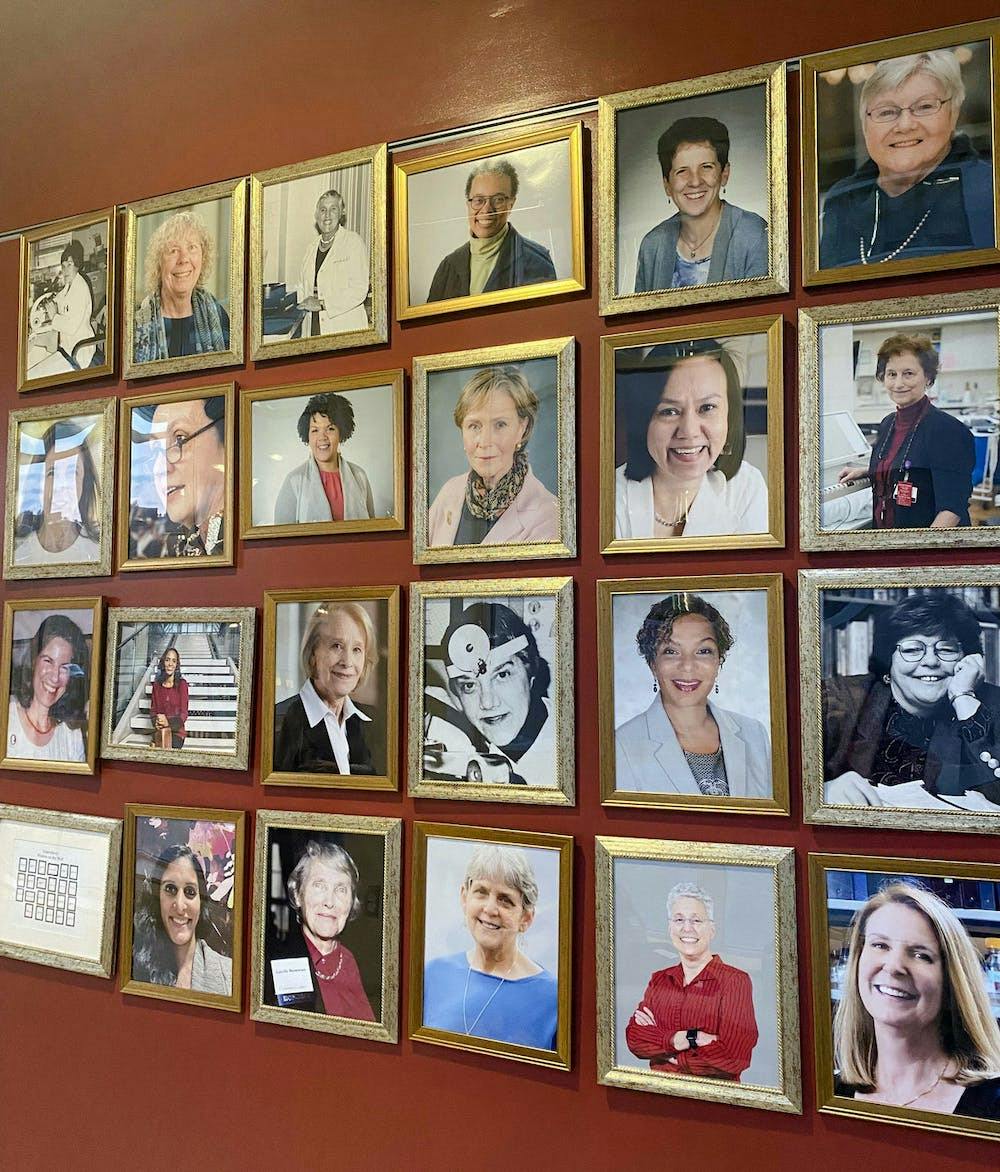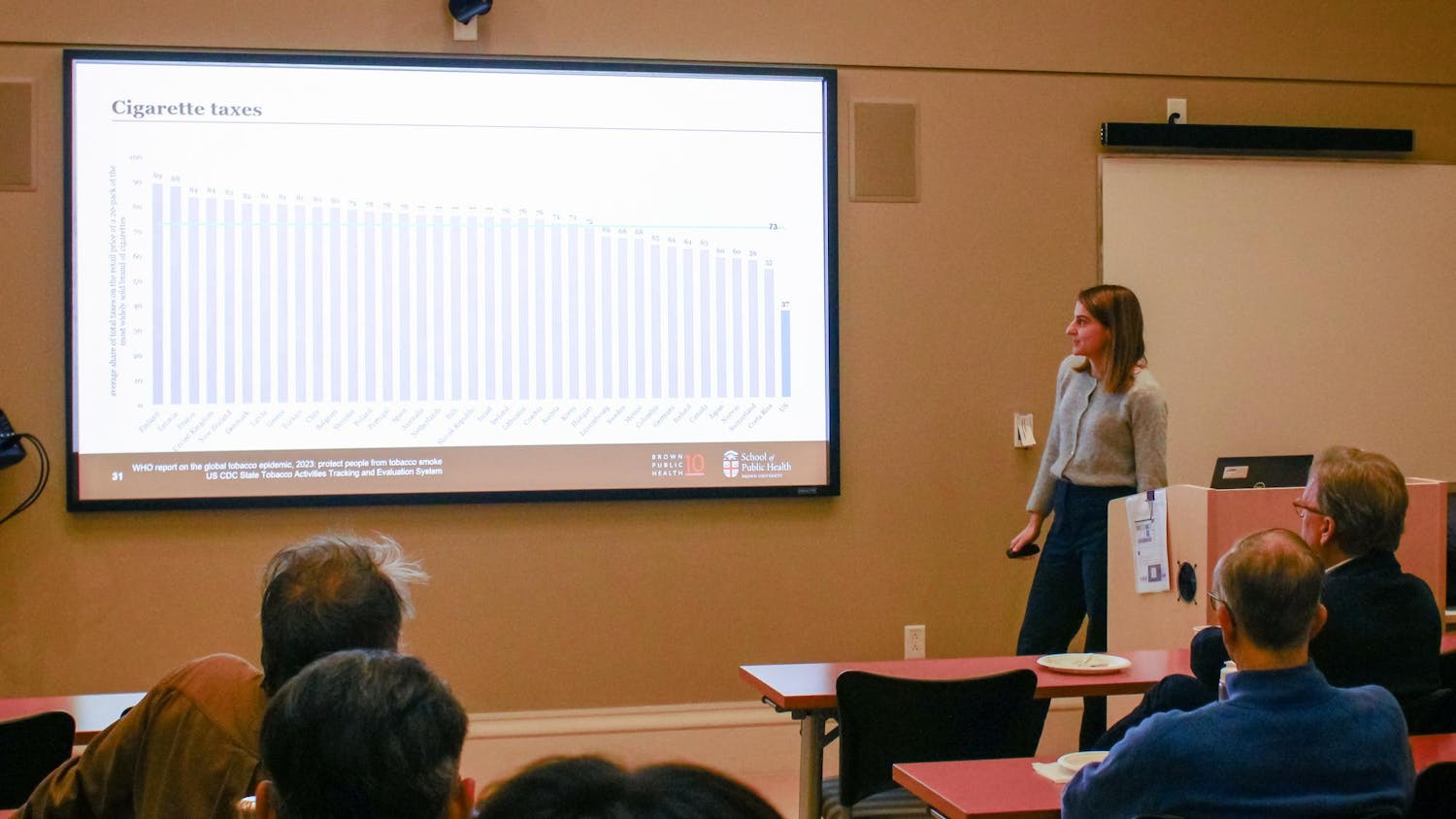Women are more likely to matriculate into medical education than men — yet they graduate at slightly lower rates. Women are also less likely to be represented in positions of leadership within the medical field. This discrepancy can be explained by multiple factors — but how effective is the current system at addressing gender disparities in the medical field?
“Medicine is completely late to the game … when you talk about addressing bias and the ‘-isms,’” said Sabina Holland, pediatric infectious disease specialist at Hasbro Children’s Hospital, in a virtual panel discussion Monday about the adversities women face in medicine.
The event, titled “The Breaking Point,” was hosted by the Pembroke Center. It invited three female physicians with ties to Brown to raise the question: “Why are women leaving the medical profession?”
“There are some very basic things that I think medicine as a whole needs to really sink its teeth into,” Holland said.
Female matriculation into the field is higher than it has ever been and the graduation rate is also promising. But something changes between residency and when female physicians enter the workforce that skews female representation in the opposite direction: “Life happens,” Holland said.
Physicians are constantly chasing the perfect work-life balance, and this is particularly hard for women balancing medicine and motherhood, according to the panelists. Although Holland “expertly planned” finding spouses and deciding if and when to have children, “even at that point, it felt like pure chaos,” she added.
The panelists reflected on the changes they had seen throughout their careers. “People are much more aware of their mental health and the (work-life) balance that doesn’t exist,” said Wendy Wilcox ’88 P’23, NYC Health and Hospitals’ chief women’s health service officer.
“The times in my career that I felt less fulfilled or more frantic was probably when my kids were young … it felt hard on the homefront,” said Valerie Parkas ’88 MD’92, P’20 ’22 senior associate dean of admissions and recruitment at Icahn School of Medicine at Mount Sinai. “You want to be there for the things in your life, whatever they are,” Parkas said. “Allowing yourself the grace to do it your way is really important.”
Still, the panelists emphasized how fulfilling it is to balance work and life.
“If I do have to miss something because I’m at work and (my children) ask why, I love being able to tell them ‘because I love my job and it makes me happy,’ and that answer makes them happy,” said Holland.
One obstacle to work-life balance, especially for women, is poor maternity leave policies. “Medicine is not unique in that position … it’s a societal and cultural problem that needs to be addressed across the board,” Wilcox said. “We need to respect the fact, like many other countries do, that you can lead the workforce and then take time off and still have a brain to think when you get back … and do a damn good job.”
Throughout their careers, women in medicine earn less and achieve fewer leadership roles. “It’s 2023, and we’re still fighting for pay equity,” Holland said. “This isn’t a conversation we should be having.”
Despite the challenges, the speakers emphasized the importance of remaining hopeful. “Despite the title of today’s webinar, we also have to stay a little bit optimistic,” Parkas said. “There’s a lot of places that we can fix this … that’s unconscious bias training, that’s teaching everyone, that’s teaching yourself, that’s education — and we can do that.”
“Fixing the issue will require more women in leadership positions,” Wilcox said.
That doesn’t just mean in hospitals, but academia as well. While the roles of chairperson or dean are typically filled by men, there are more females in instructing or assistant professor positions, according to panelists. There tends to be fewer women further up the “title hierarchy.”
Holland, who completed her fellowship at Brown and is currently an assistant professor of pediatrics at Warren Alpert Medical School, reflected on her unique situation in which her chair and many of her direct reports are women.
“I’m still here at Brown because I recognize the unusual unicorn ecosystem that I am in,” Holland said. “I feel lucky, and I want to say that over and over again so that everyone listening can think about who they are promoting.”
Surrounded by others who know what it’s like to be a woman in medicine, Holland said she can perform at her best.
When asked what advice they’d like to pass on to young women entering the medical field, the panelists encouraged the act of seeking mentorship. Whether it’s another physician with more experience, or another student or resident from a similar background, learning from others with shared experiences and seeing them as examples of the opportunities available can be reassuring.
The panelists also stressed the importance of advocacy. “Change isn’t going to happen if no one’s listening to you or if you’re not in the meeting,” Holland said.
Conversations such as Monday’s panel are imperative, according to Parkas, because poor policies that influence physicians have consequent effects on patient care, accessibility and public health. Advocating for equity in medicine is “the most moral imperative of any field in the world because it directly has to do with health care outcomes,” she added.
The panel closed with reassuring sentiments from the three women and some hopeful words for the future. “For future generations of female physicians, maybe we won’t have it totally fixed, but hopefully the work that people like the three of us are doing now will have some impact,” Wilcox said.
“If someone asked me, ‘Would I do it all again?’ my answer is wholeheartedly ‘yes,’” Holland said.
Liliana Cunha is a staff writer covering Science and Research. She is a sophomore from Pennsylvania concentrating in Cognitive Neuroscience. In her free time, she loves to play music and learn new instruments.





